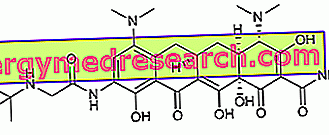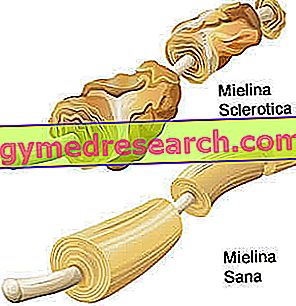While hyperthyroidism is a morbid condition due to the enhanced secretory activity of the thyroid, thyrotoxicosis is the clinical picture that is established in response to the exposure of the tissues to the thyroid hormones in excess.

Exophthalmos (protruding eyes) may be a symptom of thyrotoxicosis associated with Graves' disease. From the site: //body-disease.com/
Even if they seem closely related, thyrotoxicosis and hyperthyroidism are not always associated conditions; tissue alterations may in fact depend on the production of thyroid hormones by other tissues, such as the ovaries, by the incorrect intake of thyroid hormones (also for weight loss) or by an increased hormonal release from damaged thyroid cells (see thyroiditis). In all these cases there is thyrotoxicosis without hyperthyroidism.
- THYREXOSICOSES: Clinical syndrome due to excess of circulating thyroid hormones
- HYPERTHROIDISM: Excess of thyroid hormones from thyroid hyperfunction
The toxic action of iodothyronines at tissue level determines the typical symptoms of thyrotoxicosis : excessive weight loss (with normal or more often increased appetite), tachycardia, sweating, heat intolerance, tremors, anxiety, diarrhea, insomnia, thin, sweaty, hot skin and often reddened, brittle nails and hair; often thyrotoxicosis is accompanied by an increased hair loss.



